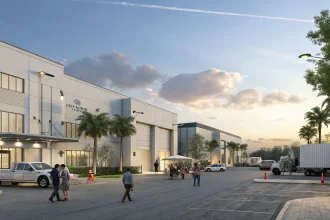Healthcare professionals are urging for more transparent and consistent immigration policies for skilled foreign-born workers, highlighting the critical need for these workers to care for America’s growing elderly population.
As the United States faces increasing healthcare demands from its aging demographic, foreign-born medical professionals represent a vital resource. However, current immigration policies lack the clarity these workers need to make long-term career commitments in the American healthcare system.
The Growing Healthcare Workforce Gap
The call for immigration policy reform comes as the healthcare industry struggles with staffing shortages across multiple specialties. Foreign-born doctors, nurses, technicians, and other medical professionals help fill crucial gaps in the healthcare workforce, particularly in underserved and rural communities.
Healthcare professionals point out that the uncertainty surrounding visa status, permanent residency pathways, and work authorization creates significant barriers for recruiting and retaining qualified foreign medical personnel. This uncertainty affects not only the workers themselves but also healthcare facilities trying to maintain adequate staffing levels.
Addressing America’s Aging Population Needs
The demographic shift toward an older population in the United States is creating unprecedented demand for healthcare services. According to healthcare professionals, this trend makes the need for a stable, well-trained workforce even more urgent.
Foreign-born healthcare workers often bring specialized skills and cultural competencies that are particularly valuable when caring for diverse patient populations. Many are willing to work in geographic areas or specialties that face chronic staffing shortages, including:
- Geriatric care specialists
- Primary care physicians in rural areas
- Long-term care facility staff
- Home health aides
Policy Recommendations from Healthcare Professionals
Medical professionals are advocating for several specific policy improvements to address these challenges. They suggest that immigration policies should provide clearer pathways to permanent residency for healthcare workers, especially those in high-demand specialties.
“Foreign-born healthcare workers need to know they have a secure future in this country if we expect them to commit to caring for our aging population,” said one healthcare administrator who works with international medical graduates.
Other recommendations include streamlining the visa application process, reducing processing delays, and creating special provisions for healthcare workers in critically understaffed fields.
Economic and Social Impact
Beyond addressing immediate healthcare needs, proponents argue that a more welcoming immigration policy for medical professionals would yield broader economic benefits. Foreign-born healthcare workers contribute significantly to the economy through taxes, consumer spending, and often by establishing their own practices that create additional jobs.
Healthcare facilities also note that staff shortages lead to increased costs, as they must rely on temporary workers or pay overtime to existing staff. These costs ultimately affect healthcare affordability for all Americans.
As the debate over immigration continues, healthcare professionals emphasize that this issue transcends politics—it directly affects the health and wellbeing of millions of Americans who depend on a functioning healthcare system staffed by qualified professionals, regardless of where those professionals were born.
Without policy changes, many healthcare organizations warn that the staffing crisis will only worsen as the population continues to age, potentially leading to reduced access to care and diminished quality of services for those who need them most.









